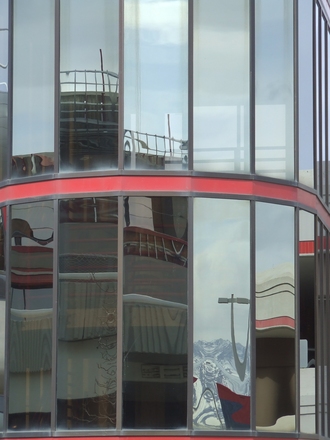

IN THE political spheres or most political media it is widely recognised that in order to discourage certain policies and certain types of behaviour one might need to shame those who propose or exercise any such policy or action, respectively. This, for example, is why we criticise proponents of software patents and even Red Hat's patent agreement with Microsoft. The example they give to others is dangerous and without public challenge it can carry on and even expand.
"The example they give to others is dangerous and without public challenge it can carry on and even expand."Red Hat should be based in Raleigh, not Red Mond [sic], where Red Hat now sends its engineers to work under Microsoft leadership while receiving salaries from Red Hat. We had a long chat about this with someone from Red Hat last night. We still hope that Red Hat will decide to do the right thing. Like Novell's Cambridge lab, which it used along with Microsoft to promote Microsoft's agenda, now we have Red Hat staff sharing space with Microsoft staff. Microsoft is a proponent of software patents and still insists that Linux players should pay Microsoft for patents. So how can one reconcile or compromise? In our Open Letter to Red Hat’s new CEO (Jim Whitehurst) 8 years ago we told him that it is “hard to name companies that have benefited from a Microsoft pact” (this is still true).
We will continue to wait and give Red Hat an opportunity to explain what was done with Microsoft regarding patents. We encourage others to ask Red Hat those questions as well. If public pressure is sufficient to influence Red Hat's PR/marketing experts, Red Hat will decide to open up. For a company steered by shareholders it all boils down to money and reputation. ⬆
“What we [Novell and Microsoft] agreed, which is true, is we'll continue to try to grow Windows share at the expense of Linux. That's kind of our job. But to the degree that people are going to deploy Linux, we want Suse Linux to have the highest percent share of that, because only a customer who has Suse Linux actually has paid properly for the use of intellectual property from Microsoft. And we took a quota, you could say, to help them sell so much Suse Linux. That's part of the deal. We are willing to do the same deal with Red Hat and other Linux distributors, it's not an exclusive thing. But after a few years of working on this problem, Novell actually saw the business opportunity, because there's so many customers who say, 'Hey look, we don't want problems. We don't want any intellectual property problem or anything else. There's just a variety of workloads where we, today, feel like we want to run Linux. Please help us Microsoft and please work with the distributors to solve this
problem, don't come try to license this individually.' So customer push drove us to where we got.”